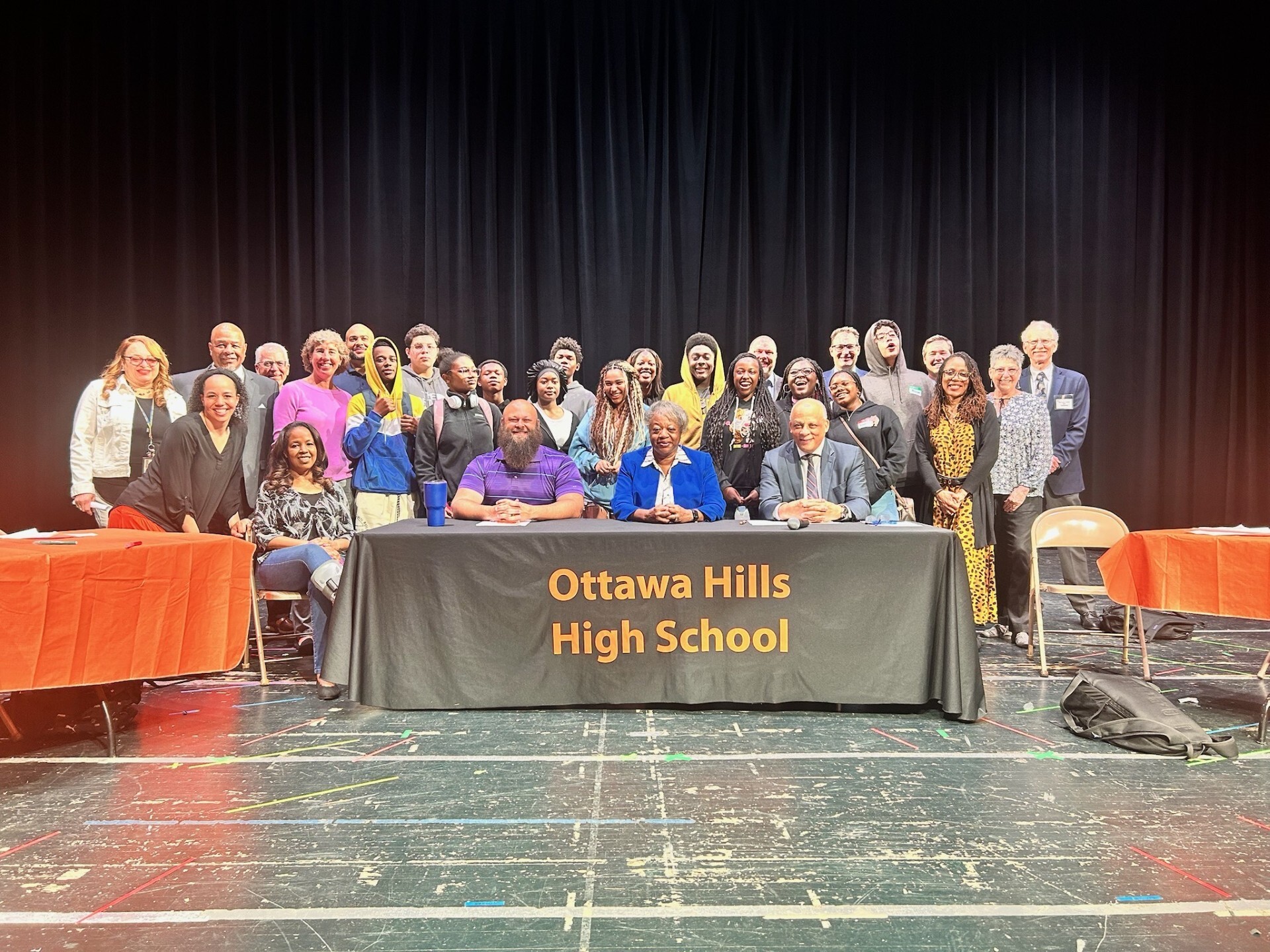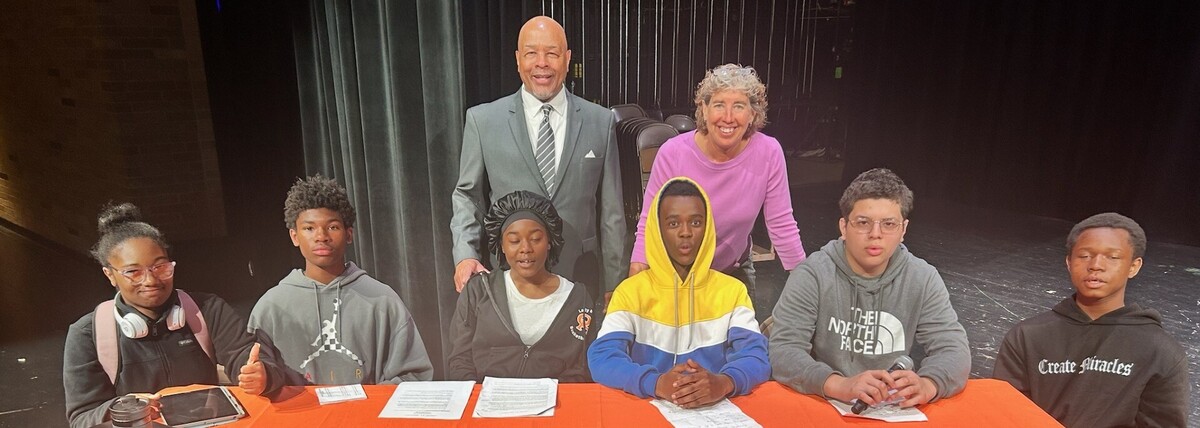GRAND RAPIDS, Mich. (GRPS) -- Ottawa Hills High School is home to a unique learning experience that brings the legal world directly into the classroom. The 3Rs Program—Rights, Responsibilities, and Realities of the Law—partners scholars with local lawyers, judges, and civil rights experts for monthly sessions designed to help young people better understand the laws that shape their lives.
Learning the Law from the People Who Uphold It
Each month, scholars meet with volunteers from the legal community to explore different aspects of our country’s legal landscape. These professionals don’t just lecture; they model real legal processes, guide discussions, and help scholars thoughtfully engage with constitutional issues.
For Kevin Jackson, investigator for the Michigan Department of Civil Rights, the goal is not only to teach scholars what the law says but also why it matters. “Today’s lesson is on the right to vote, which is one of our constitutional issues and an important responsibility as an American,” he said. “We’ll get into some of the history—the laws and constitutional amendments—and then we’ll have an opportunity to debate.”
Debate as a Tool for Understanding
Debate is central to the 3Rs program. Each learning cycle ends with a scholar-led debate, but long before that, legal mentors show students what strong argumentation looks like. In a recent session, mentors modeled this by debating a timely question: Should the United States build a border wall along the southern border with Mexico?
By walking through their arguments, the volunteers demonstrated how to present different perspectives, respond to opposing claims, and offer well-supported rebuttals while maintaining respect for their debate opponent. These demonstrations give scholars a clear framework for their own debates and build skills that support civic understanding, academic confidence, and real-world problem solving now and in the future.
Connecting the Law to Scholars’ Lives
A major emphasis of the 3Rs program is showing scholars how legal rights and responsibilities directly shape their everyday experiences.
As attorney Laura Jeltema reminded the group during the Voting Rights lesson, “even the things you vote on in school can influence how your life is in this space.”
That message resonated as scholars learned about the freedoms and responsibilities that come with turning 18—voting, signing contracts, making medical decisions, enlisting in the military, or legally marrying. To bring these ideas to life, the class simulated a vote on a provocative question: Should the age of legal adulthood be lowered from 18 to 16?
Scholar Curiosity Drives Deeper Conversation
The 3Rs sessions thrive on scholar-driven questions, and this month’s session delivered thoughtful inquiries that sparked meaningful dialogue between peers. Among them:
- What if someone can’t get to the polls because of work or family responsibilities? This question led to a discussion about early voting, absentee ballots, and expanding voter access.
- Are people legally required to vote? This question opened a conversation about voting as a right, a responsibility, and a civic duty—though not a legal requirement.
- What percentage of people actually vote? Is that number going up or down? These questions prompted exploration of voter turnout patterns, election cycles, and what issues typically motivate voters.
These questions show just how deeply scholars are thinking about their role in our democracy.
A Program That Enriches Everyone Involved
The success of the 3Rs program at Ottawa Hills is largely due to its partnership with the Grand Rapids Bar Association and the dedication of the educators who have supported it over the years. Program coordinator Kristin Vanden Berg has been involved since the program’s inception nearly 15 years ago. Likewise, teacher Whitley Morse—whom Vanden Berg calls “a fantastic ambassador for the program”—is serving her second stint as lead teacher.
Vanden Berg also highlights the commitment of volunteer faculty: “They are carefully selected and commit to the program for a full year. We ask them to keep in mind that these sessions are just as important on the calendar as being scheduled for court.”
She added, “Our faculty often get as much out of the experience as our students do.” With nearly all teachers returning this year, Vanden Berg expects the culminating debate to build on last year’s success.
Empowering Scholars Through Civic Literacy
 The 3Rs program does more than teach legal concepts. It empowers scholars to think critically, communicate effectively, and understand their place in the democratic process. By engaging directly with professionals who live and work within the legal system, Ottawa Hills scholars gain a rare, hands-on civic education.
The 3Rs program does more than teach legal concepts. It empowers scholars to think critically, communicate effectively, and understand their place in the democratic process. By engaging directly with professionals who live and work within the legal system, Ottawa Hills scholars gain a rare, hands-on civic education.
As the program moves through another year of discussions and debates, it continues to reinforce a powerful message: knowing your rights, understanding your responsibilities, and recognizing the realities of the law are essential steps toward becoming an informed and engaged citizen.






